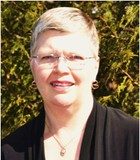Recent articles and chapter include:
Pamela Dickey Young, Heather Shipley and Ian Alexander Cuthbertson. “Religion, Gender and Sexuality Among Youth in Canada: Some Preliminary Findings.” Bulletin for the Study of Religion 45/1 (2016): 17-26.
Heather Shipley and Pamela Dickey Young. “Religion, Youth and Queer Identities Canada,” in Sexual Diversity and Religions: Transnational Dialogues in the Contemporary World, ed. Martin Jaime. Lima: PEG/Diversities, (forthcoming) 2016.
“Who Speaks for Religion?” Issues in Religion and Education: Whose Religion? Leiden: Brill, 2015, 305-320.
Heather Shipley and Pamela Dickey Young. “Christianity, Gender and Identity among Canadian Youth,” in The Brill Handbook of Global Contemporary Christianity: Themes and Developments in Culture, Politics and Society, ed. S. Hunt. Leiden: Brill Academic Press, 2015, 325-245.
Pamela Dickery Young and Heather Shipley. “Belief, not religion: Youth Negotiations of Religious Identity in Canada,” in Handbook of Children and Youth Studies, eds. J. Wyn and H. Cahill. Singapore: Springer, 2015, 861-873.
Heather Shipley and Pamela Dickey Young. “Values and Practices: How are Youth Integrating Religion and Sexuality in their Daily Lives?” in Globalized Religion and Sexuality: Contexts, Contestations, Voices. ed. H. Shipley. “International Studies in Religion and Society,” Leiden: Brill Academic Press, 2014, 276-294.
“’Severely Normal’: Sexuality and Religion in Alberta’s Bill 44,” in Religion and Sexuality: Diversity and the Limits of Tolerance. ed. Pamela Dickey Young, Heather Shipley and Tracy Trothen. Vancouver: University of British Columbia Press, 2015, 45-66.
“Conclusion,” in Religion and Sexuality: Diversity and the Limits of Tolerance. ed. Pamela Dickey Young, Heather Shipley and Tracy Trothen. Vancouver: University of British Columbia Press, forthcoming, 2015, 241-246.
Recent papers presented include: “Sex, Religion and Canadian Youth,” Association for the Sociology of Religion, Seattle, August 20, 2016; “Examining Competing Claims in the Dialogue over Sex Education in Ontario: Women, Rights and Religion,” Workshop on Women, Rights and Religion, University of Calgary, August 28, 2016; “Gender in the RGSY Project,” Canadian Society for the Study of Religion, , 1 June 2015.
Research Statement:
My current research interests revolve around questions of sex, gender and public policy and on questions of the intersections of sexual identity and religious identity, particularly among youth. I am interested in such questions as how religion plays into the social construction of sex, gender and sexuality and how religion is involved in public debates on questions of sex, gender and sexuality.
Current Research Projects:
In the context of the MCRI work working with Heather Shipley and RA Ian Cuthbertson on a project entitled: Religion, Gender and Sexuality among Youth in Canada. In the first stage of this research project we have received almost 500 responses to a web-based survey in English and French. We are currently analyzing the data, interviewing some of the participants and having some of them complete video diaries. More information on the project is available from our web site: http://www.queensu.ca/religion/Faculty/research/dickeyyoung.html











